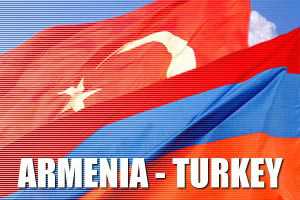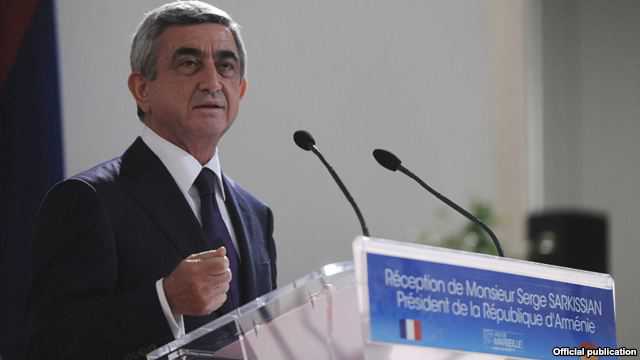December 15, 2011 — ANKARA, Turkey (AP) — Turkey will withdraw its ambassador to France if Paris adopts a law that makes it a crime to deny that the mass killings of Armenians by Ottoman Turks was genocide, state media quote a Turkish official as saying.
Historians estimate that up to 1.5 million Armenians were killed by Ottoman Turks around the time of World War I, an event many international experts regard as genocide and which France recognized as such in 2001.
Turkey rejects the term genocide to describe the killings, saying the figure is inflated and that deaths occurred on both sides as the Ottoman Empire collapsed during the war. France has urged Turkey to recognize the massacre as genocide and the lower house of the French Parliament will debate on Dec. 22 the proposal. Denying the genocide would be punishable by up to a year in prison and 45,000 euros ($58,500) in fines.
France banned the denial of the Holocaust in 1990. The bill being debated would put denying the Armenian genocide on par with Holocaust denial. Turkish officials have said such a law would cause “irreparable” damage to ties between the two countries already hurt by French President Nicolas Sarkozy’s opposition to Turkey’s bid to join the European Union.
On Thursday, the state-run Anadolu Agency quoted Turkish diplomat Engin Solakoglu as saying the Turkish ambassador in Paris, Tahsin Burcuoglu, would be recalled for consultations “for an indefinite period of time” if the proposal is passed.
Turkish Foreign Ministry officials would not immediately confirm the report. In a speech delivered in Turkey’s Parliament late Wednesday, Turkish Foreign Minister Ahmet Davutoglu accused France of spearheading “a Middle Ages mentality” in Europe.
“This amounts to banning alternative thoughts (on history). This mentality belongs to the Middle Ages,” Davutoglu said. “If such a law is passed, France will be leader of the arrival of the Middle Ages mentality in Europe.”
A Turkish parliamentary delegation is scheduled to visit France next week to talk with legislators ahead of the debate. Sarkozy had hinted during a visit to Armenia in October that Turkey’s refusal to recognize the genocide would force France to change its law and make the denial of the genocide a criminal offense.
via Report: Turkey could recall its France ambassador.






